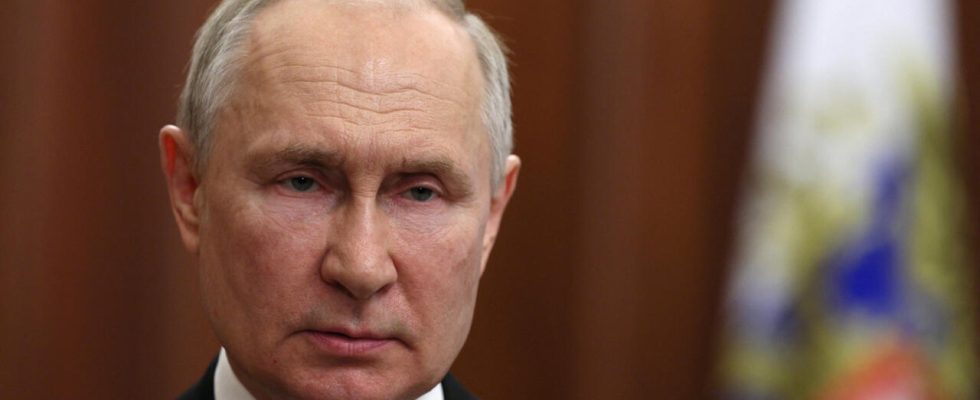Moscow officially left the Comprehensive Nuclear Test Ban Treaty (CTBT) on Thursday, a treaty it signed in 2000 but which never entered into force due to a lack of sufficient states to have ratified it.
Published on :
3 mins
On Thursday, November 2, Russia revoked its ratification of the Comprehensive Nuclear Test Ban Treaty (CTBT), under a law promulgated by Vladimir Putin against a backdrop of conflict in Ukraine and crisis with the West.
It is “a big step in the wrong direction”, reacted the head of American diplomacy Antony Blinken – whose country has never ratified this document –, urging Moscow not to resume such tests.
Opened for signature in 1996 and ratified by Russia in 2000, this treaty has never entered into force because it has so far only been ratified by too few States, among the 44 countries which owned nuclear facilities at the time of writing.
Read alsoRussian nuclear threat: Putin does not intend to attack, but “recall its deterrent capabilities”
At the beginning of October, the Russian president had already raised the possibility of such a revocation, in response to Washington.
“I am not ready to say whether or not we should resume testing,” added Vladimir Putin, while praising the development of new super-powerful missiles capable of carrying nuclear warheads.
Tactical nuclear weapons deployed in Belarus
The promulgation of the Russian law is “very disappointing and deeply regrettable”, commented Robert Floyd, the executive secretary of the UN organization responsible for the treaty (CTBTO, CTBTO in English).
Robert Floyd, however, noted that despite this decision, Russia said it was “still attached” to the treaty, “including the operation of all CTBTO monitoring stations on its territory” which make it possible to detect in real time the smallest explosion.
Read alsoNuclear bomb over Siberia: when Russian propaganda goes wrong
For its part, France “deplored” the decision. “Since the opening for signature of this treaty, the ban on nuclear tests has established itself as a common norm, which only North Korea has violated in the 21e century”, noted the French Ministry of Foreign Affairs, estimating that “Russia’s decision compromises the work of universalizing the treaty”.
Since the start of the conflict in Ukraine in February 2022, the Russian president has blown hot and cold regarding the use of nuclear weapons, deploying tactical nuclear weapons in the summer of 2023 in Belarus, Moscow’s closest ally.
Preparing Russian forces for a “massive nuclear strike” in response
The law on revoking the ratification of the Nuclear Test Ban Treaty was first passed by the State Duma, the lower house of the Russian Parliament, before being unanimously passed by the upper house, the Federation Council, at the end of October.
Duma Speaker Vyacheslav Volodin called the vote “a response to the odious attitude of the United States towards its obligations to maintain global security.”
At the end of October, Russia also carried out test firings of ballistic missiles with a view to preparing its forces for a “massive nuclear strike” in response.
Russian nuclear doctrine provides for a “strictly defensive” use of atomic weapons, in the event of an attack on Russia with weapons of mass destruction or in the event of aggression with conventional weapons “threatening the very existence of State”.
In February, Russia also suspended its participation in the New Start nuclear disarmament treaty concluded with the United States in 2010, the last bilateral agreement linking Russians and Americans.
With AFP

